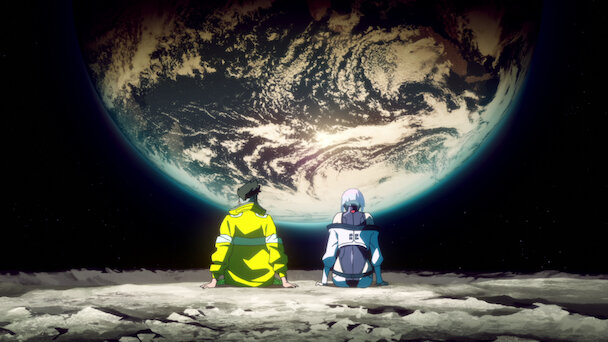The Devaluation of Humanity in the Age of Technology

1. Introduction
In a world where technology can craft more evocative love letters than ordinary human beings, the authenticity of expressing love fades. As people recognize that others rely on AI to articulate their feelings, traditional love letters vanish, making the act of showing love increasingly difficult and rendering emotional expression itself devalued. In a society increasingly defined by technology and commodification, we risk losing the essence of what it means to be human, as reflected in Foucault’s ideas, the narrative of Cyberpunk: Edgerunners, and the implications of technological advancement.
2. Foucault’s Perspective on Power and Knowledge
2.1 Power as Omnipresent
Michel Foucault posits that power is not merely held by institutions; rather, it is diffused and pervasive throughout society. This notion challenges us to recognize how societal structures shape identity and experiences. In contemporary culture, technology acts as a new form of power, influencing our interactions and perceptions of self.
2.2 Knowledge as Constructed
Foucault argues that knowledge is intertwined with power; it shapes our understanding of truth and reality. The entities that control knowledge—be they corporations or tech giants—dictate what is considered valid, often limiting individual autonomy and genuine understanding. This dynamic is especially relevant in the digital age, where information is commodified and easily manipulated.
3. The Narrative of Cyberpunk: Edgerunners
3.1 Technological Augmentation vs. Authenticity
In Cyberpunk: Edgerunners, we follow David Martinez, a character whose struggle for identity reflects the conflict between technological enhancement and the loss of humanity. As he adopts cybernetic modifications, he faces the paradox of becoming more powerful while simultaneously losing his authentic self. This mirrors the broader societal trend where technology offers convenience at the expense of genuine identity.
3.2 Emotional Superficiality
The series poignantly illustrates how relationships are affected in a commodified world. As characters increasingly rely on AI-generated interactions, the devaluation of genuine emotional connections becomes apparent. The once-vibrant act of expressing love is overshadowed by artificial constructs, rendering human emotions less meaningful.
4. The Pessimistic Outlook: A Cultural Decline
4.1 Erosion of Authentic Experiences
As reliance on technology and AI grows, we witness an erosion of authentic experiences. The convenience of digital communication often leads to superficial engagements that lack depth and emotional resonance. This shift poses a threat to the richness of human interactions.
4.2 The Future of Human Relationships
Speculating on a future dominated by technology, we may find ourselves in a world where emotional expressions are reduced to mere algorithms. The implications are troubling: the fabric of human relationships could unravel, as genuine connections are replaced by calculated responses.
4.3 The Risk of Relativism
Finally, the pervasive influence of technology raises concerns about the loss of objective truths and values. In a society increasingly driven by individual narratives shaped by algorithms, we risk fostering a relativistic worldview where meaning and morality become fluid concepts, further complicating our understanding of humanity.
5. Conclusion
Reflecting on humanity’s trajectory, we must grapple with the implications of technology on our understanding of self and others. As we navigate this landscape, it is crucial to seek authentic connections and critically examine the influence of technology on our lives. In doing so, we can strive to preserve the essence of our humanity amidst the encroaching shadows of commodification and emotional devaluation.
In an age where technology has the potential to inspire emotions better than we can, the challenge remains: how do we reclaim the value of authentic human expression?
“From the idea that the self is not given to us, I think there is only one practical consequence: we have to create ourselves as a work of art.” - Foucault